Search
Search Results
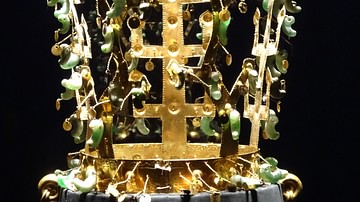
Image
Gold Silla Crown
A gold crown of the Silla kingdom, Korea. From the Great Tomb at Hwangnam, Geumseong (Gyeongju), 5-6th century CE. The crown is made of sheet-gold and decorated with granulation and crescent-shaped jade pendants. The tree-like upright parts...
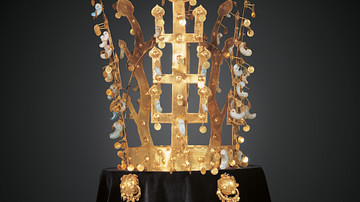
Image
Silla Gold Crown
A gold crown of the Silla kingdom, Korea. From the Auspicious Phoenix Tomb, Geumseong (Gyeongju), 5-6th century CE. The crown is made of sheet-gold and decorated with granulation and crescent-shaped jade pendants. The tree-like upright parts...
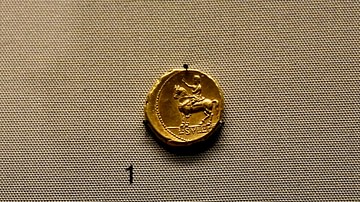
Image
Roman Republic Gold Aureus
This gold aureus is one of the first Roman portrait coins. Roman Republican coins did not usually depict living people, although a statue of the politician Sulla appeared on a coin during his lifetime. The son of Pompey the Great adapted...
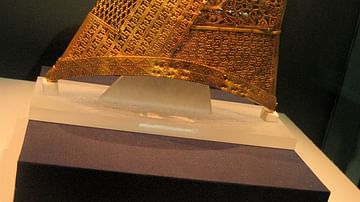
Image
Gold Silla Cap
A gold Silla crown cap from Cheonmaching (the 'Heavenly Horse Tomb'), Gyeongju, Korea. It is made from four gold plates bent and riveted together. 6th century CE. National Treasure No. 189. (Gyeongju National Museum, South Korea)
![A Gold Earring from Ur III [Reverse View]](https://www.worldhistory.org/img/c/p/360x202/7468.jpg?v=1713468543)
Image
A Gold Earring from Ur III [Reverse View]
The lower surface of the earring . Six gold spheres were lost and were not replaced. The cuneiform text is read vertically, from the upper surface downwards on each segment, and it continues from right to left. One of a pair of gold earrings...
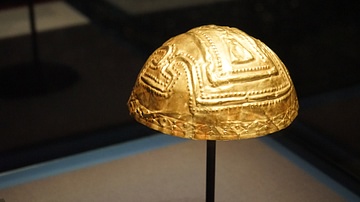
Image
Colombian Gold Helmet
Gold alloy (tumbaga), 500 BCE - 700 BCE. Colombia. Gold was an important material in ancient Colombia. It had a symbolic association with the creative energy of the Sun. This helmet would not have been used in battle but instead would...
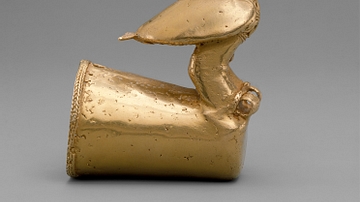
Image
Gold Staff Finial, Zenu Culture
A gold staff finial made by the Zenúes, a people who belonged to the Zenú tribe of ancient Colombia. It features an owl on the edge with a majestic crest, polished golden wings and false filigree openwork on its chest. Distinctive features...

Video
Ancient and Medieval Gold Trade in West Africa
Did you know that the Ghana king would automatically keep any gold nugget extracted that weighed between 25 grams and half a kilo? This video is all about the lucrative gold trade of ancient and medieval West Africa. West Africa was...

Image
Inca Gold Female Figurine
A gold female figurine from the Inca civilization, 15-16th century CE, Peru. Height 15 cm. Such precious figures were typically buried with important people. (The Metropolitan Museum of Art, New York)
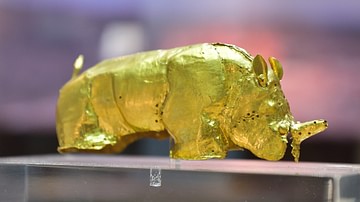
Image
Gold Rhinoceros, Mapungubwe
A gold rhinoceros from a burial site at Mapungubwe, South Africa. 11-14th century CE. (University of Pretoria Museums, South Africa)